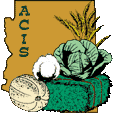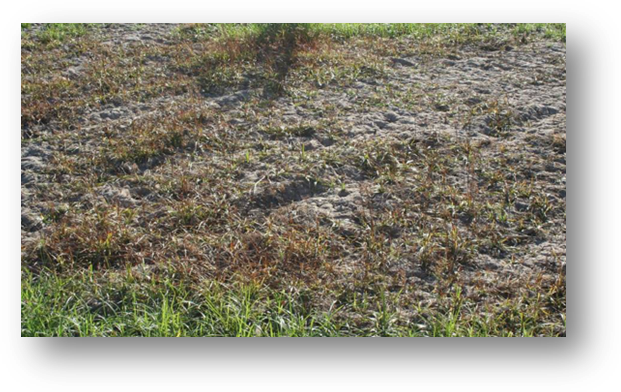
|
|
|
|

|
|||
|
|
|||
|
|
|||
|
Several herbicides can be used to kill emerged weeds prior to planting lettuce.
This is a good practice on tough weeds that cannot be selectively controlled after
the crop is established. These include oxyfluorfen (GoalTender), Paraquat (Gramoxone),
pelargonic acid (Scythe), glyphosate (Roundup), and carfentrazone (Aim, Shark),
pyraflufen(ET) and others. Most of these can be used right up to crop emergence
but some require a few days and oxyfluorfen requires as much as 120 days. Paraquat,ET,
Pelargonic acid and Carfentrazone are contact herbicides that do not translocate
in the plant and only affect those parts that they contact. Oxyfluorfen is also
a contact herbicide but it forms a barrier on the soil surface that contacts plants
as they emerge. If this barrier is disturbed, it is ineffective. Glyphosate is systemic
and only works on actively growing plants. It is ineffective on plants that have
not emerged. Contact herbicides are fast acting while some systemic herbicides can
take weeks to kill plants. Glyphosate binds strongly to soil and is inactive after
it has done so. Oxyfluorfen does not bind strongly to soil but can remain active
for weeks after application. Ninety days for the lowest rate and 120 days for the
highest rate are required prior to planting lettuce. Carfentrazone and ET may be
active on the soil for a few days after application but is safe after that. Paraquat
binds very strongly to soil and is inactive after contact. Preirrigating, germinating
weeds and killing them does not eliminate all of them but it does eliminate many
that will have to be selectively controlled later.

Burndown Herbicide Symptoms
To contact Barry Tickes go to: btickes@ag.arizona.edu.
|
|||
| Back | |||
|
For questions or comments on any of the topics please contact Marco Pena at the Yuma Agricultural Center.
|
|||
|
Home |
Cotton | Veggies |
Forages | Grains
| Citrus |
Crop x Crop Insects | Diseases| Weeds | Pesticides | Economics | News | Weather | Research | Photos | Contacts | General Info. Copyright © 2001 University of Arizona, College of Agriculture and Life Sciences Webmaster: Al Fournier (acis@ag.arizona.edu) |
|||
